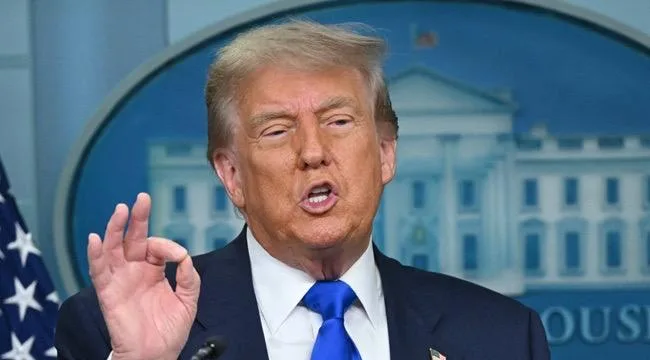A New York appeals court has overturned the $500 million civil fraud penalty imposed on President Donald Trump, though it upheld his liability for fraudulent business practices. The ruling comes nearly a year after Judge Arthur Engoron found Trump had inflated the value of his properties to secure favorable loans.
Judge Engoron originally ordered Trump to pay $355 million, which, with interest, grew to over $500 million. While the appeals court agreed that Trump and the Trump Organization committed fraud, judges ruled the fine was excessive and likely violated constitutional protections against disproportionate punishment. “While harm certainly occurred, it was not the cataclysmic harm that can justify a nearly half billion-dollar award to the state,” wrote Judge Peter Moulton in the lengthy decision.
The ruling, released on Thursday, did not overturn other penalties imposed by Judge Engoron. Trump remains banned from serving as a company director or taking out loans from banks in New York for three years. These nonmonetary restrictions, as well as findings of fraud, remain in place.
Trump celebrated the decision on his social media platform, Truth Social, calling it a “total victory” and describing the original penalty as an “unlawful and disgraceful decision” that had harmed businesses across the state. His son Eric Trump echoed the sentiment, saying on social media: “After 5 years of hell, justice prevailed!”
The New York Attorney General’s Office, which brought the case, framed the decision as a partial win. While the fine was tossed, the judges upheld Trump’s fraud liability, including that of his two adult sons and the Trump Organization. The office said it plans to appeal the decision to the state’s highest court, the New York Court of Appeals. “It should not be lost to history: yet another court has ruled that the president violated the law, and that our case has merit,” the office said in a statement.
The 323-page ruling highlighted disagreement among the five-judge panel over the original lawsuit’s scope. Some judges believed the case should have been dismissed or retried in a more limited form, but all joined the decision to overturn the fine to ensure finality.
Trump’s business practices, including overstating the size and value of properties like his Trump Tower penthouse, formed the basis of the civil fraud claims. The case, first filed by Democratic Attorney General Letitia James, has been described by Trump as politically motivated.

